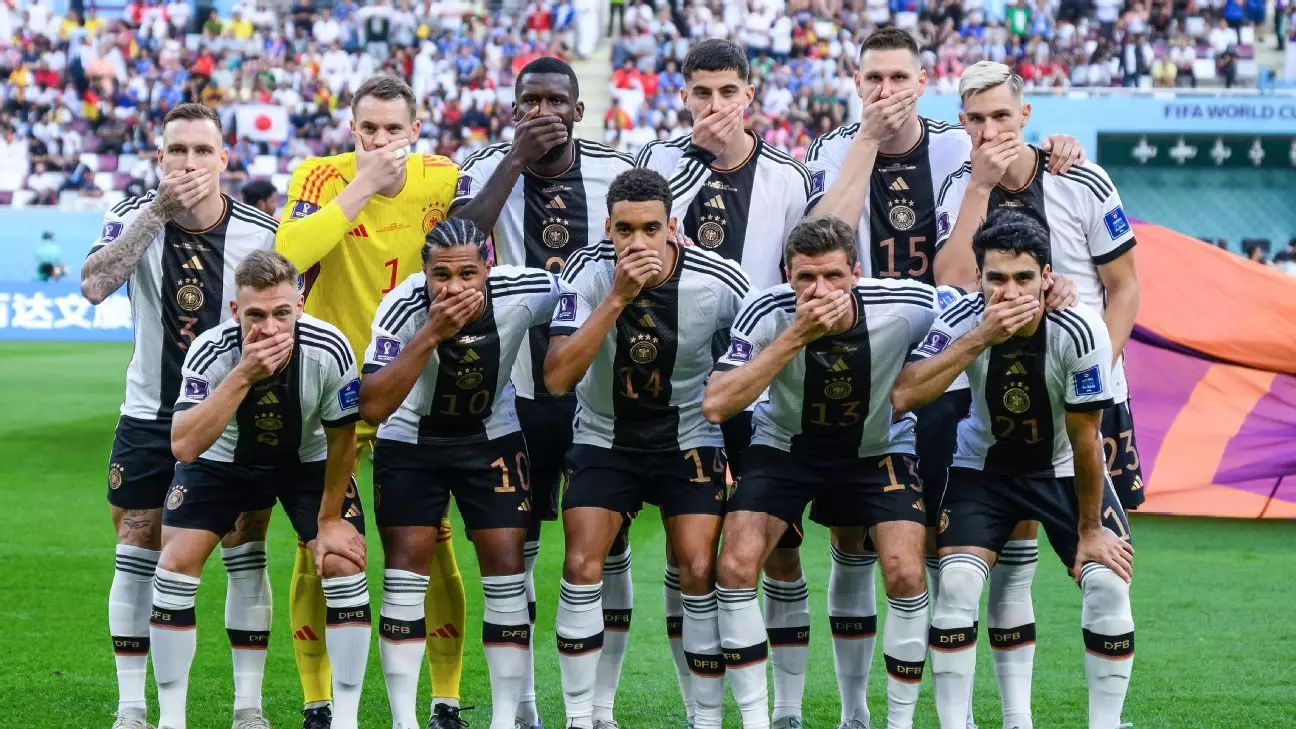In the intersection of sports and society, the role of athletes as public figures has never been more pronounced. With athletes often regarded as role models, their actions and stances on social issues can hold significant weight. Joshua Kimmich, the newly appointed captain of the German national soccer team, has recently emphasized that while players should embody and represent values in society, they are neither political experts nor tasked with navigating the complex landscape of political issues constantly. As Germany prepares for upcoming Nations League matches, Kimmich’s insights shed light on the delicate balance athletes must maintain between upholding ethics and focusing on their primary responsibilities on the field.
Kimmich’s statements come at a critical time when discussions surrounding Saudi Arabia’s bid to host the 2034 World Cup have raised eyebrows, particularly due to the country’s contentious human rights record. As pressure mounts to address these issues, Kimmich highlights the limitation of players in influencing political decisions, underscoring that while athletic figures can advocate for values, the expertise required to articulate and navigate political stances rests with designated authorities.
Germany’s performance during the 2022 World Cup in Qatar serves as an important reference point for Kimmich’s dialogue. His reflection on the tournament reveals a tension between advocacy and performance. Despite the opportunity to champion social concerns, Kimmich notes that the team’s political expressions detracted from their cohesion and enjoyment of the tournament. The symbolic act of covering their mouths during a team photo was powerful but also revealed the internal conflict between representing national pride and advocating for global values.
This action stemmed from a confrontation with FIFA regarding the “OneLove” armband, which aimed to promote diversity and tolerance—a cause that aligns with numerous athletes’ personal beliefs. However, the backlash and the subsequent sanctions threatened by FIFA sparked a complicated dialogue about the role of sports institutions and their responsibilities in addressing social issues. Kimmich’s acknowledgment that Germany did not present an entirely favorable image reinforces the idea that activism in sports must be approached with caution and intention.
Kimmich’s statements also point to a critical realization about the nature of sociopolitical engagement. By emphasizing that “Western countries represent views that we think are universal,” he signals an awareness of the cultural and legal disparities different nations face—especially in relation to human rights issues. The captain’s contemplation on Germany’s own domestic challenges reflects a holistic view that encourages athletes and nations alike to examine the socio-political landscape in their own backyard before pointing fingers at others.
This bears significant implications as the global community amplifies discussions surrounding human rights. Kimmich’s insistence that athletes should prioritize their performance and focus on the competition encapsulates a pragmatic approach to sports. By acknowledging that there are experts dedicated to addressing political matters, he draws a line between advocacy and professional commitment—an important distinction for athletes navigating the expectations that accompany their positions.
As the vote for Saudi Arabia’s World Cup bid approaches, the future of international sports diplomacy lingers in the balance. Kimmich expresses a hope that those athletes participating in the tournament a decade from now can focus entirely on their athletic endeavors. This sentiment resonates as a call for sports figures to concentrate on their craft while simultaneously standing for the values they believe in, but in ways that align with their primary roles as competitors.
In concluding his remarks, Kimmich captures a significant dichotomy inherent in sports: the need for athletes to embody values while recognizing their limitations in political discourse. As society continues to grapple with pressing human rights issues and the role of sports within that arena, his perspective advocates for a thoughtful approach—one that respects both the power of sports as a platform for change and the necessity of expertise in addressing the nuances of political advocacy. In this evolving conversation, the role of athletes as ambassadors of values will continue, but their focus, according to Kimmich, should ultimately remain on their performance and results on the field.

